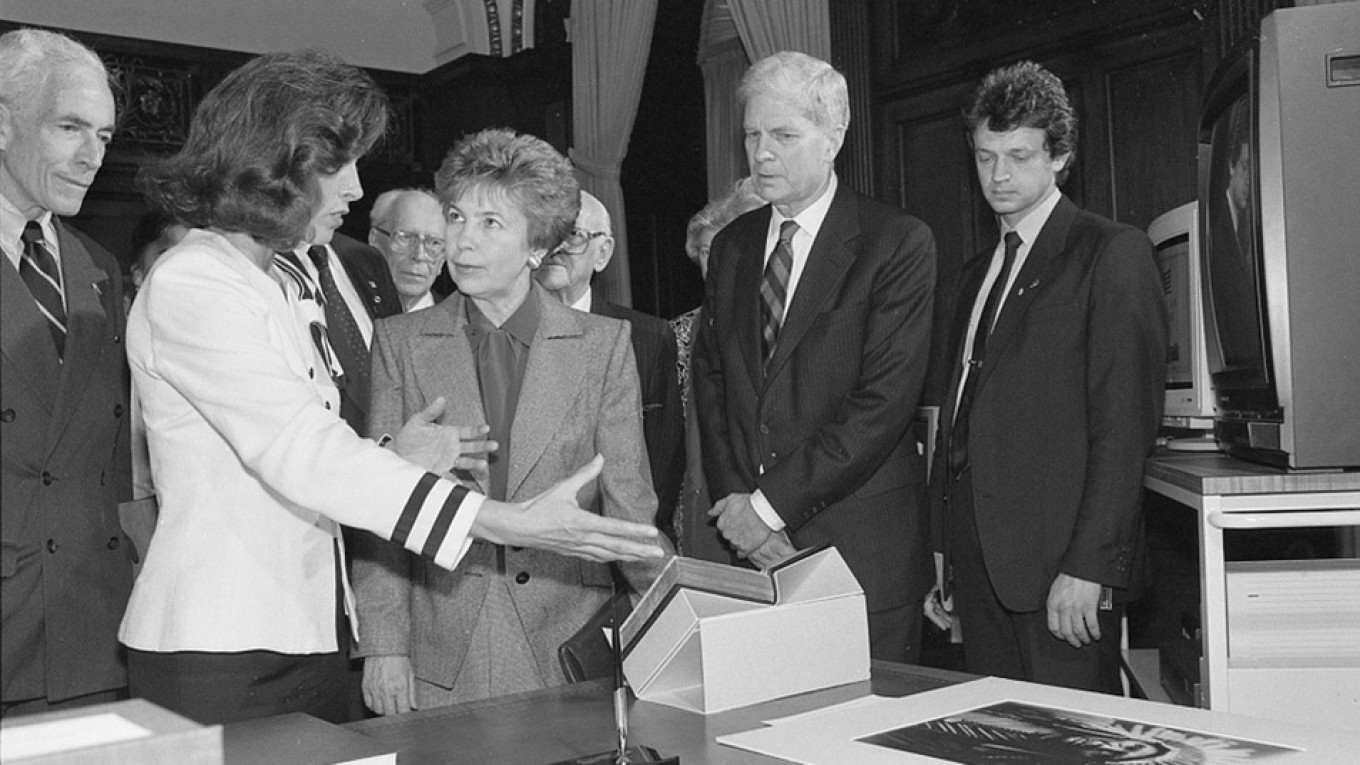Last week James H. Billington died at the age of 89. A giant in the realm of Slavic and East European studies, Billington produced the classic appreciation of Russia and Russian culture, "The Icon and the Axe," in 1966 -- a volume that brought countless people into the field and did much to foster his reputation as one of America's principal Russianists of the past century.
Billington began his study of things Russian in high school, continued at Princeton and took his doctorate from the University of Oxford in 1953. He taught at Harvard and Princeton before his appointment in 1973 as head the Woodrow Wilson International Center for Scholars in Washington. There he became one of the founders of the Kennan Institute for Advanced Russian Studies as well as the Center's award-winning journal The Wilson Quarterly.
Almost two decades later, in 1987, President Ronald Reagan appointed Billington the 13th Librarian of Congress. A relatively low-profile position for decades, the Librarianship proved a great starting point and bully pulpit for Billington: he revolutionized the Library, digitalizing materials, putting the Congressional proceedings online in searchable form, and launching dozens of programs and events, among them the American Memory Project, the Veterans History Project and the National Book Festival. Under his leadership, the Library expanded the definition of arts and culture to include popular culture as never before, initiating the Gershwin Prize for Popular Song and the Living Legends Awards for contributors to the broadening of American culture in virtually any field. Billington also raised millions of dollars of funding through special events, some of which brought controversy along with the much-needed financial support.
When Billington retired in 2015, the Library of Congress was a fundamentally different organization from the one he had inherited in 1987 -- a vibrant, active, inclusive institution that celebrated, preserved and supported American arts and letters.
I had the good fortune to work for and with Billington earlier in his career, during two different tours of duty at the Kennan Institute/Wilson Center. He was a remarkable, larger-than-life figure; not surprisingly, therefore, I have also had -- like many people in our business -- a good handful of colorful Billington stories to share with students, colleagues and friends over the years. It was (and is) a rich vein to mine, as you'd expect of tales deriving from an authority whose like we will not see again soon in our field.
He was not a man who suffered fools gladly -- or minded mentioning their foolishness in public venues, for that matter. So I was ready, shall we say, to listen attentively when he stopped me in a corridor of the Wilson Center one day in 1980 to mention that he had read a brief reflection piece on current trends in Moscow and Leningrad that Blair Ruble and I had recently written for an obscure emigre journal (Igor Birman's short-lived "Russia").
Happily, it was a good-news stop: he'd been impressed by the piece, Billington said, and mentioned several points that he thought were particularly nail-on-head. Trying not to sound too relieved, I thanked him, to which he replied "Oh, and you should come by my office at some point to talk about your dissertation." I hadn't been aware he even knew I was writing a dissertation, much less had any interest in the topic (early Soviet perceptions of America).
It was one of those clarifying moments when you figure "Maybe I'm in the right business after all" -- and I've always been grateful for Billington's graciousness that day to a (very) junior colleague.
Mark H. Teeter, a former opinion page editor of The Moscow Times and deputy director of the Kennan Institute, is the editor of Moscow TV Tonite on Facebook.
A Message from The Moscow Times:
Dear readers,
We are facing unprecedented challenges. Russia's Prosecutor General's Office has designated The Moscow Times as an "undesirable" organization, criminalizing our work and putting our staff at risk of prosecution. This follows our earlier unjust labeling as a "foreign agent."
These actions are direct attempts to silence independent journalism in Russia. The authorities claim our work "discredits the decisions of the Russian leadership." We see things differently: we strive to provide accurate, unbiased reporting on Russia.
We, the journalists of The Moscow Times, refuse to be silenced. But to continue our work, we need your help.
Your support, no matter how small, makes a world of difference. If you can, please support us monthly starting from just $2. It's quick to set up, and every contribution makes a significant impact.
By supporting The Moscow Times, you're defending open, independent journalism in the face of repression. Thank you for standing with us.
Remind me later.







